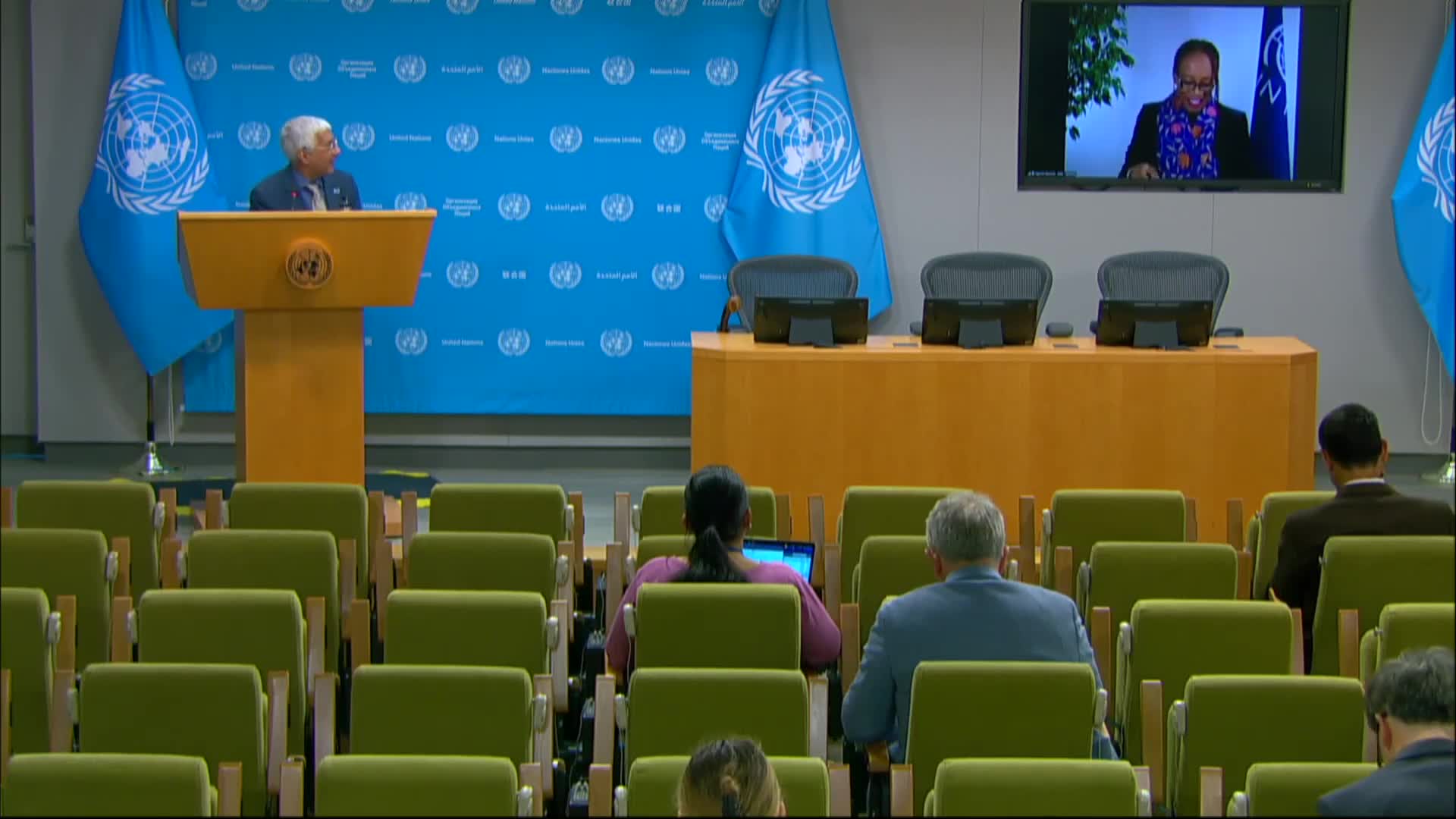UN agencies urge immediate ceasefire, access and funding as Sudan crisis deepens
Get AI-powered insights, summaries, and transcripts
Subscribe
Summary
Senior leaders from IOM, UNHCR, UNICEF and WFP told a joint briefing that Sudan faces the world’s worst displacement crisis, with millions in need of aid, and they called for an immediate cessation of hostilities, unhindered humanitarian access and a major scale-up of flexible funding.
Senior officials from the International Organization for Migration (IOM), the UN Refugee Agency (UNHCR), UNICEF and the World Food Programme (WFP) held a joint briefing to warn that Sudan’s multi-year conflict has created the world’s worst displacement crisis and to press for an urgent political and financial response.
IOM Deputy Director General for Operations Ugochi Daniels said the scale of the emergency is vast: "Over 30,000,000 people are in need of humanitarian assistance, and we've recorded 9,600,000 internally displaced people and 4,300,000 people who are displaced across borders." He called for "immediate cessation of hostilities, the protection of civilians, unhindered humanitarian access, and simplified procedures for aid delivery." Daniels also highlighted that 2,600,000 people have returned home, including about 1,000,000 in Khartoum, and described pilot rehabilitation work — including a commissioned solarized water facility and planned November projects supported by the African Development Bank.
UNHCR Deputy High Commissioner Kelly Clements, reporting from a five-day visit to Port Sudan and Khartoum, emphasized the human toll behind the numbers and protection risks, especially for women and girls. She recounted displaced people's personal losses and security threats and noted that Sudan continues to host nearly 900,000 refugees from neighbouring countries. "They need peace, and they need it now," Clements said, urging that refugees inside Sudan not be forgotten as host communities face growing hardship.
UNICEF Deputy Executive Director for Humanitarian Action and Supply Operations Ted Chaiban described the acute impact on children, citing soaring rates of severe acute malnutrition, disease outbreaks and the loss of education for millions. He said about 1,400,000 children live in areas at risk of famine and that 14,000,000 children are out of school. "The conflict is escalating, and children are paying the highest price," Chaiban said, while also noting instances of community-led recovery such as repaired schools and child-friendly spaces.
WFP Assistant Executive Director Valerie Guarneri said WFP has scaled up to reach over 4,000,000 people each month — double last year’s reach — and is supporting more than 2,000,000 people in Darfur. She said coverage in some famine-risk locations has risen to about 85% of assessed populations, but cautioned that progress depends on safe access and funds. "We have the operational wherewithal to reach 4 to 5,000,000 people every single month. But the sad reality is that we're going to have to start retrenching that simply because there isn't enough resources coming in to sustain that level of effort," she said.
All four speakers urged member states and the UN Security Council to support political measures to stop the fighting, enable humanitarian access and back UN system reform aimed at better integrating humanitarian, development and peace responses. They also stressed the large funding shortfalls: the humanitarian response plan was described as only about a quarter funded and the regional refugee response plan substantially underfunded, leaving many needs unmet.
The briefing closed with agency officials answering reporters' questions about where development actors can operate safely, prospects for access to besieged areas and how convoys and cash aid are being used where physical deliveries are blocked. Officials said responses must be context-specific: development interventions can take root in relatively peaceful areas, while humanitarian and rehabilitation efforts must proceed together where security permits.
The agencies repeated a common set of immediate priorities: an urgent ceasefire, protection for civilians, unfettered humanitarian access across Sudan, simplified procedures for aid delivery and a substantial increase in flexible, predictable funding to scale up life-saving assistance and support durable solutions for displaced people.
